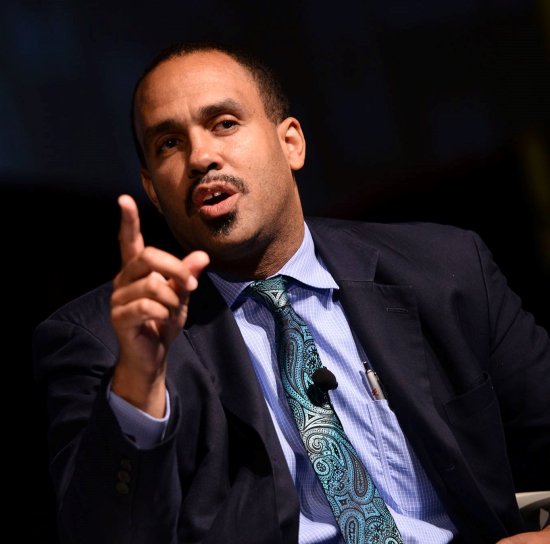
In 2017, Dedrick Asante-Muhammad and a team of researchers released a study with a staggering title and stunning conclusion, “The Road to Zero Wealth: How the Racial Wealth Divide Is Hollowing Out America’s Middle Class.”
Should the United States continue its trajectory, the report concluded, the median Black household wealth would reach $0 by the year 2053. The same would happen to the median Latino household by 2073, Asante-Muhammad and fellow researchers Chuck Collins, Josh Hoxie, and Emanuel Nieves found. Meanwhile, even as the U.S. became a so-called minority-majority country, the median white household wealth would climb. But it didn’t just point out the problem: Full of economic substance, the “Road to Zero” proposed solutions such as reforming the mortgage interest deduction and strengthening the Consumer Financial Protection Bureau.
[time-brightcove not-tgx=”true”]
“Oftentimes the frame is, ‘Oh, we’re not where we want to be, but we’re getting there,’” says Asante-Muhammad, 50, vice president of racial economic equity, research, and workforce development at the National Community Reinvestment Coalition, a nonprofit network trying to solve America’s persistent wealth, income, and opportunity divides. “And for 20 years I have been trying to highlight, ‘No, we aren’t.’”
In 2005, Asante-Muhammad attended a national gathering of racial-wealth-gap specialists organized by Kilolo Kijakazi, then an academic and researcher working as a program officer at the Ford Foundation and until late 2023, acting commissioner of the Social Security Administration. The conference brought together cross-disciplinary scholars of the racial wealth gap and mentored them in ways that boosted the volume of research, op-eds, and other more accessible work.
“In 2003, if someone was writing about the racial wealth gap, I personally knew them. By 2018, it really started blowing up,” says Asante-Muhammad. “But it’s still not as deeply understood as I might like. I found that a lot when I was working with financial institutions where racist stuff about [how] Blacks just don’t pay their debts is still in circulation. And today you can speak to people on Capitol Hill who will use the phrase ‘racial wealth gap,’ but still don’t quite grasp the meaning, the difference between wealth and income.”
Wealth is a measure of cash and other assets minus debt that a family can rely upon to weather financial shocks like rapid inflation, recessions, illnesses, and job losses. There are many factors that contribute to a massive racial wealth gap, the largest and most persistent of all forms of economic inequality in the U.S. But housing – namely, homeownership, how long one has owned, and the unique difficulties that Black homeowners face securing fair and accurate appraisals – is one of the biggest. Since 2013, median wealth figures by racial and ethnic group have pointed to faster rates of wealth gain among Black and Latino households, according to the Federal Reserve’s Survey of Consumer Finances. But wealth gaps between groups remain vast. In 2022, median wealth among white families was $285,000, compared to $536,000 for Asian American households. At the same time, the median wealth of Black families was $44,900, and of Latino families, about $61,600. The nation’s racial wealth gaps are even larger when the value of depreciating assets such as cars are removed.
A code that effectively taxes the poor a greater share of their income than the rich is particularly disadvantageous for Black Americans, and both Congress and voters have refused to permanently implement targeted policies that would add the kind of income, health care, and housing supports that were put in place during the pandemic and proved capable of reducing poverty and economic distress, Asante-Muhammad says.
“We are no longer on the path to zero wealth,” he says. “We are just on a nonstop highway of deep asset poverty and an ongoing racial wealth divide. We’re still broke and in need of radical intervention.”